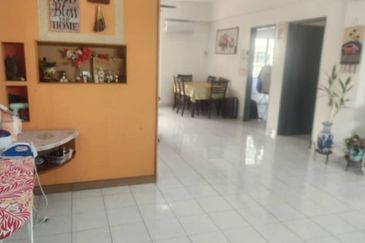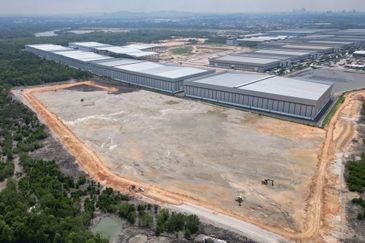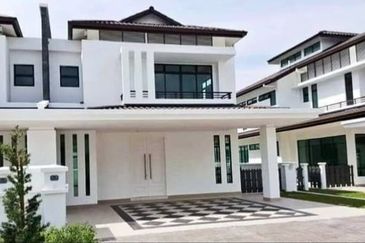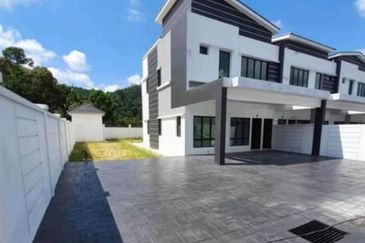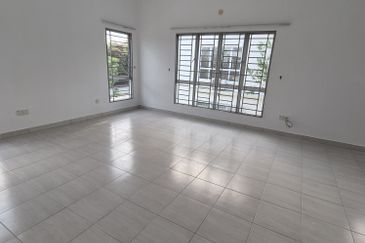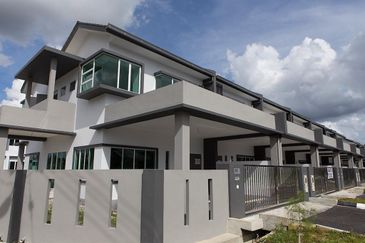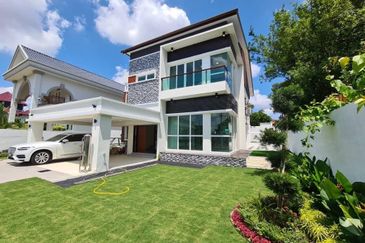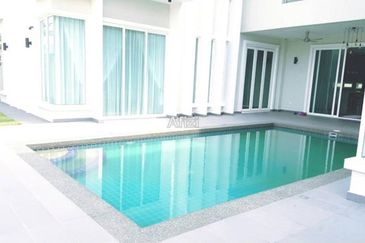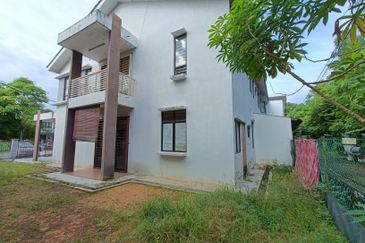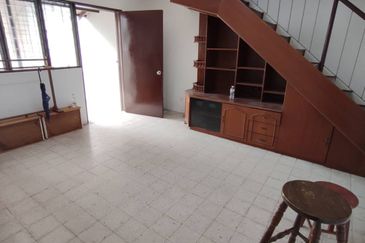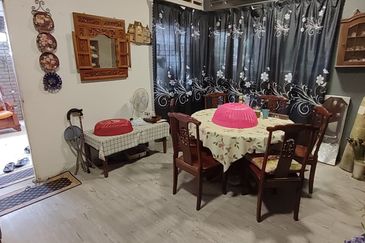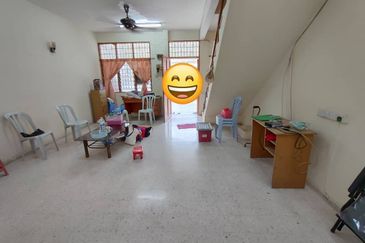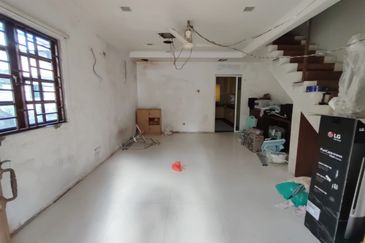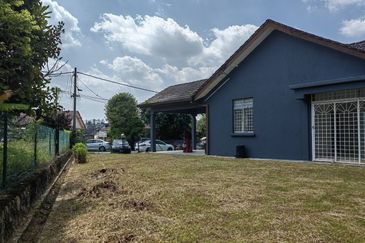
JOHOR BARU (Nov 30): Johor Bahru is getting a facelift and it is being done with a royal stamp of approval. On Nov 22, the Sultan of Johor, Sultan Ibrahim Sultan Iskandar, officially launched the Ibrahim International Business District (IIBD) transformation plan, which will see about 250 acres of land in the city centre redeveloped. This ‘transformation zone’ is bordered by Jalan Ayer Molek, Jalan Tun Sri Lanang, Jalan Tun Abdul Razak and Jalan Sultan Ibrahim.
The launch of the long-discussed IIBD was held in conjunction with Sultan Ibrahim’s 57th birthday.
The first project in the IIBD is the 6.32-acre mixed-use development Coronation Square, named to commemorate Sultan Ibrahim’s coronation as the Sultan of Johor on March 23 this year.
The plan will be jointly administered by Johor Corp (JCorp), the Johor Baru City Council and the state government. The developer of Coronation Square is Coronade Properties Sdn Bhd.
“This strategic development is important as, among other things, Johor Baru has experienced a big increase in population, which has spurred major economic growth. The existence of the IIBD will enhance the local community’s standard of living,” said Johor Menteri Besar Datuk Mohamed Khaled Nordin at the launch.
JCorp president and CEO Datuk Kamaruzzaman Abu Kassim estimates the cost of IIBD at between RM20 billion and RM25 billion. It has no completion deadline but is intended to provide all the facilities and services needed to support high-density developments and a growing population.
While IIBD will not be designated a special zone, it could offer incentives for businesses to open in the area, as well as tax breaks for the owners of buildings that need refurbishment. Coronation Square is intended as a catalyst “for the other components in the CBD,” added Kamaruzzaman.
Catalysing the business district
Coronation Square will take nine to 10 years to complete, said Kamaruzzaman and has a gross development value of RM3 billion. It comprises a mall called Persada Annexe with a gross floor area of 80,000 sq ft, two blocks of high-rise serviced apartments, an office block, a hotel with residences, and medical suites, which have already been sold, said Coronade Properties managing director Datuk Patrick Lim. Kamaruzzaman

said the suites will be managed by JCorp and KPJ Healthcare Bhd from 2019, and will offer traditional and alternative treatments such as Ayurveda and acupuncture in addition to western allopathic medicine.
Its clientele is expected to be drawn from Asean countries, the Middle East, China, Korea and Japan, Kamaruzzaman said. “The medical suites represent the service sector, particularly medical tourism, in tandem with the state government’s aspiration to transform Johor into a regional medical hub,” he added.
According to Lim, the first of two serviced apartment blocks will be opened for sale in mid-2016. Provisionally, there will be about 400 two-bedroom units with an average built-up area of 600 sq ft. These will come partly furnished and be competitively priced, says Lim.
subhead: The consultants’ view
The serviced apartments will help satisfy the demand for accommodation in the city centre, where the supply is currently limited, say property consultants.
“Most of the new developments are serviced apartments. Other residential developments are either old detached houses or residences on the upper floors of shops,” says KGV International Property Consultants (Johor) Sdn Bhd director Samuel Tan.
“Serviced apartments near the IIBD are transacting at between RM800 and RM1,200 psf. These include Suasana by UM Land, Causeway Regency by Bangsar Heights Pavilion, SKS Pavillion Residences by SKS Bhd, Tebrau 8 Residences by See Hoy Chan Group and Tritower by MB Group.
“There is strong demand [for residential property] due to the anticipated RTS (Johor Baru–Singapore Rapid Transit System) nearby. The demand from Malaysians working in Singapore is obvious as it would make it convenient for them to commute daily.”
The RTS will connect Singapore and Johor Baru.
PA International Property Consultants Sdn Bhd director V Sivadas concurs with Tan: “There will always be demand for accommodation in the city centre but pricing must be attractive.”
Lim says the Rotana Group is one of the parties being considered as the operator of one of the hotels in Coronation Square, which will be developed in two phases. Phase 1 will comprise the office tower, a serviced apartment block, the medical suites and the hotel with residences. Construction starts in the first quarter of next year (1Q2016).

On the long-term viability and possible multiplier effect of Coronation Square, the consultants concur that it can be positive for the market and wider local economy, provided the project is managed with a keen eye on demand.
“This type of development will, in the long run, positively affect property values, provided the local, national and regional economic situation remains favourable. Demand has to be created to ensure the various components are fully taken up,” says Sivadas.
Tan comments: “These [components of Coronation Square] will be built in stagsaid the suites will be managed by JCorp and KPJ Healthcare Bhd from 2019, and will offer traditional and alternative treatments such as Ayurveda and acupuncture in addition to western allopathic medicine.
Its clientele is expected to be drawn from Asean countries, the Middle East, China, Korea and Japan, Kamaruzzaman said. “The medical suites represent the service sector, particularly medical tourism, in tandem with the state government’s aspiration to transform Johor into a regional medical hub,” he added.
According to Lim, the first of two serviced apartment blocks will be opened for sale in mid-2016. Provisionally, there will be about 400 two-bedroom units with an average built-up area of 600 sq ft. These will come partly furnished and be competitively priced, says Lim.
The consultants’ view
The serviced apartments will help satisfy the demand for accommodation in the city centre, where the supply is currently limited, say property consultants.
“Most of the new developments are serviced apartments. Other residential developments are either old detached houses or residences on the upper floors of shops,” says KGV International Property Consultants (Johor) Sdn Bhd director Samuel Tan.
“Serviced apartments near the IIBD are transacting at between RM800 and RM1,200 psf. These include Suasana by UM Land, Causeway Regency by Bangsar Heights Pavilion, SKS Pavillion Residences by SKS Bhd, Tebrau 8 Residences by See Hoy Chan Group and Tritower by MB Group.
“There is strong demand [for residential property] due to the anticipated RTS (Johor Baru–Singapore Rapid Transit System) nearby. The demand from Malaysians working in Singapore is obvious as it would make it convenient for them to commute daily.”

The RTS will connect Singapore and Johor Baru.
PA International Property Consultants Sdn Bhd director V Sivadas concurs with Tan: “There will always be demand for accommodation in the city centre but pricing must be attractive.”
Lim says the Rotana Group is one of the parties being considered as the operator of one of the hotels in Coronation Square, which will be developed in two phases. Phase 1 will comprise the office tower, a serviced apartment block, the medical suites and the hotel with residences. Construction starts in the first quarter of next year (1Q2016).
es and must be in tandem with market forces. I believe the developer will be discerning enough not to flood the market with products that are not in demand.”
On whether Persada Annexe, the mall in Coronation Square, will affect the business of nearby malls, Sivadas says he does not foresee “any negative impact in the future to Johor Baru City Square and Komtar JBCC. Other businesses within the city should benefit in the long run as more shoppers and visitors to the city are envisaged upon the completion of the proposed development. The people, too, would welcome the entry of another mall here.”
Transformers
For outsiders looking in, the transformation of Johor Bahru, one of the flagship areas in Iskandar Malaysia, is slow going compared with its peers. KGV’s Tan says that is to be expected. “It is a brownfield with existing buildings and land that is mostly privately owned. It is certainly easier to develop greenfield areas like Nusajaya than the city.”
He says transforming the Johor Bahru city centre will require cooperation between the private and public sectors, taking into consideration their strengths. “The authorities will spearhead infrastructural development like roads, interchanges and the upgrading of Sungai Segget. The private sector will play the role of developing buildings befitting Johor Baru’s status as a rising international metropolis,” Tan suggests.
To change what is existing will take time, especially when deciding how best to proceed with the transformation of a city.
According to Sivadas, many factors must be taken into consideration for the transformation of Johor Baru. “Urban planners and conservationists will have differing ideas on the direction the city has to take. Is there a need to tear down everything and build multiple walls of towers throughout the region? How do you create more public spaces and parks within the city to make it more liveable and people-friendly? Should private vehicles be barred within the city and free trams/buses provided to ease congestion?”
According to Savills Malaysia executive chairman Christopher Boyd, “Johor Bahru is at last coming of age and moving away from its typical border town gateway image to assert itself as the principal city of the south. To achieve this, the city needs more ‘weight’ to overcome its rather hollowed-out appearance. Great cities have wonderful pedestrian concourses, a variety of shopping, interesting buildings, stunning open spaces and heritage precincts.
“Inevitably, these are complemented by model urban regeneration projects that bring people and life back into the city and give it a reinvigorated sense of identity. That is what Coronation Square is all about.”
Tan couldn’t agree more: “It is a much-needed effort as the existing CBD is plagued with problems like traffic congestion, flash floods and the like. We need a planned CBD with orderliness and space for green areas and buildings.”
Sivadas concurs: “I believe Iskandar Malaysia is not meant to be a pure property play. We need to see more employment generators and big businesses setting up there, particularly in the city. The city centre suffers from poor traffic flow and the occasional flooding along Jalan Wong Ah Fook.
“A lot of funds are going into the Sungai Segget project, which the authorities hope will mitigate the flood problems and eventually be a focal point of the city centre. And the city has sorely needed the RTS/MRT project for the last two decades.
“Facilitating a much higher degree of movement of people and goods on either side of the Causeway will eventually transform JB exponentially. That will create demand for the office and accommodation space being built and planned now.”
A version of this article was first published in The Edge Malaysia weekly, Nov 30-Dec 6, 2015. Tap here to subscribe for your personal copy.
TOP PICKS BY EDGEPROP
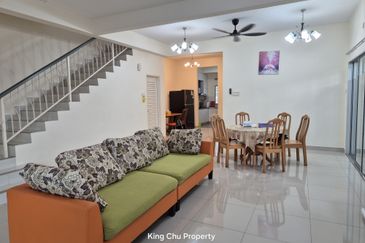
VISION HOMES @SEREMBAN 2
Seremban, Negeri Sembilan
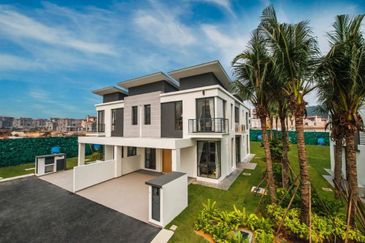
Bandar Bukit Tinggi
Bandar Botanic/Bandar Bukit Tinggi, Selangor
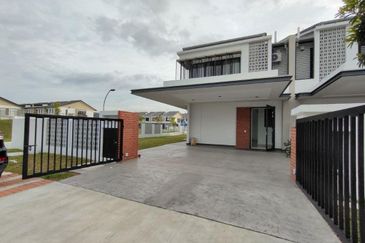
Section 19 (Seksyen 19) @ Shah Alam
Shah Alam, Selangor
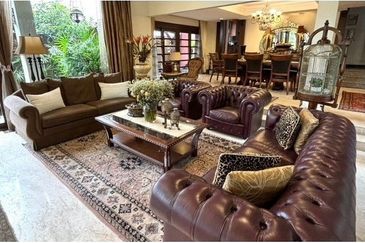
Taman Tun Dr Ismail
Wilayah Persekutuan Kuala Lumpur, Kuala Lumpur
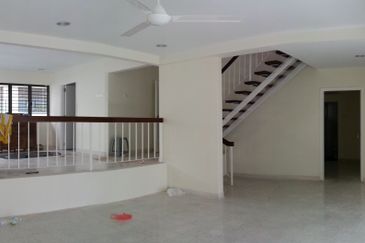
Taman Tun Dr Ismail
Wilayah Persekutuan Kuala Lumpur, Kuala Lumpur
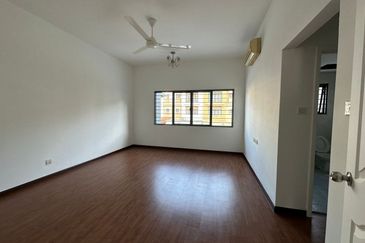
Sunway SPK Damansara
Sunway SPK Damansara, Kuala Lumpur


